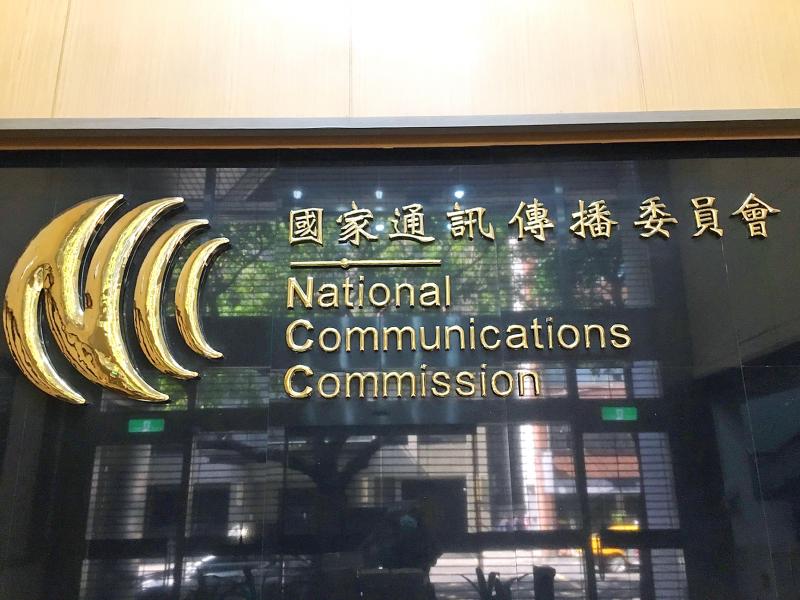Telecoms have been asked to provide solutions after poor reception was identified as the No. 1 source of consumer complaints that the National Communications Commission (NCC) received in the first quarter this year.
From January to March, the commission received 1,234 complaints related to telecom service, down from 1,281 during the same quarter last year, NCC statistics show.
However, 771 of the complaints in the first quarter were related to reception of telecom services, with 64.59 percent being about poor reception that users experienced at home or at work.

Photo: Yang Mien-chieh, Taipei Times
Meanwhile, changes in telecom service contracts and subscriber service were identified as the second and third-biggest sources of complaints, accounting for 11 percent and 8 percent respectively, the NCC said.
The three telecoms that received the most complaints were Chunghwa Telecom, Taiwan Star and Taiwan Mobile, with 32.41 percent, 19.53 percent and 18.48 percent of the complaints.
Consumers who complained about poor indoor reception often asked telecoms to reduce their monthly service fees or improve the reception immediately, the commission said, adding that some demanded that their service contracts be terminated.
The commission offered two possible explanations for poor indoor reception.
“Transmission of electromagnetic waves could be hindered by buildings or topography, depending on where base stations were installed,” it said.
Another reason might be that a telecom removed a base station after residents in the area complained about it, but failed to find a different location nearby to reinstall it, it said.
“We have asked telecoms to conduct tests at locations where a majority of complaints took place and offer solutions accordingly,” the NCC said. “If consumers complain about poor reception, telecoms are advised to give consumers a rebate or allow them to terminate service contracts early while they find ways to address the problem, such as quickly installing a new base station.”
Telecoms should inform consumers that they have a seven-day free trial period for any telecom service they plan to subscribe to, the commission said.
Telecoms are obligated to disclose their service coverage areas to consumers, it said, adding that such information should be available in their retail stores and on their Web sites.
Telecoms must also disclose exactly what their service entails based on the “Telecommunication Service Quality Items and Formats,” which was published on April 8 last year, the NCC said.

The Grand Hotel Taipei on Saturday confirmed that its information system had been illegally accessed and expressed its deepest apologies for the concern it has caused its customers, adding that the issue is being investigated by the Ministry of Justice Investigation Bureau. The hotel said that on Tuesday last week, it had discovered an external illegal intrusion into its information system. An initial digital forensic investigation confirmed that parts of the system had been accessed, it said, adding that the possibility that some customer data were stolen and leaked could not be ruled out. The actual scope and content of the affected data

‘LIKE-MINDED PARTNER’: Tako van Popta said it would be inappropriate to delay signing the deal with Taiwan because of China, adding he would promote the issue Canadian senators have stressed Taiwan’s importance for international trade and expressed enthusiasm for ensuring the Taiwan-Canada trade cooperation framework agreement is implemented this year. Representative to Canada Harry Tseng (曾厚仁) in an interview with the Central News Agency (CNA) said he was increasingly uneasy about Ottawa’s delays in signing the agreement, especially as Ottawa has warmed toward Beijing. There are “no negotiations left. Not only [is it] initialed, we have three versions of the text ready: English, French and Mandarin,” Tseng said. “That tells you how close we are to the final signature.” Tseng said that he hoped Canadian Prime Minister Mark Carney

POSITIVE DEVELOPMENT: Japan and the US are expected to hold in-depth discussions on Taiwan-related issues during the meeting next month, Japanese sources said The holding of a Japan-US leaders’ meeting ahead of US President Donald Trump’s visit to China is positive news for Taiwan, former Japan-Taiwan Exchange Association representative Hiroyasu Izumi said yesterday. After the Liberal Democratic Party’s landslide victory in Japan’s House of Representatives election, Japanese Prime Minister Sanae Takaichi is scheduled to visit the US next month, where she is to meet with Trump ahead of the US president’s planned visit to China from March 31 to April 2 for a meeting with Chinese President Xi Jinping (習近平). Japan and the US are expected to hold in-depth discussions on Taiwan-related issues during the

President William Lai (賴清德) yesterday bestowed one of Taiwan’s highest honors on Saint Vincent and the Grenadines (SVG) Ambassador Andrea Clare Bowman in recognition of her contributions to bilateral ties. “By conferring the Order of Brilliant Star with Grand Cordon on Ambassador Bowman today, I want to sincerely thank her, on behalf of the Taiwanese people, for her outstanding contribution to deepening diplomatic ties between Taiwan and SVG,” Lai said at a ceremony held at the Presidential Office in Taipei. He noted that Bowman became SVG’s first ambassador to Taiwan in 2019 and